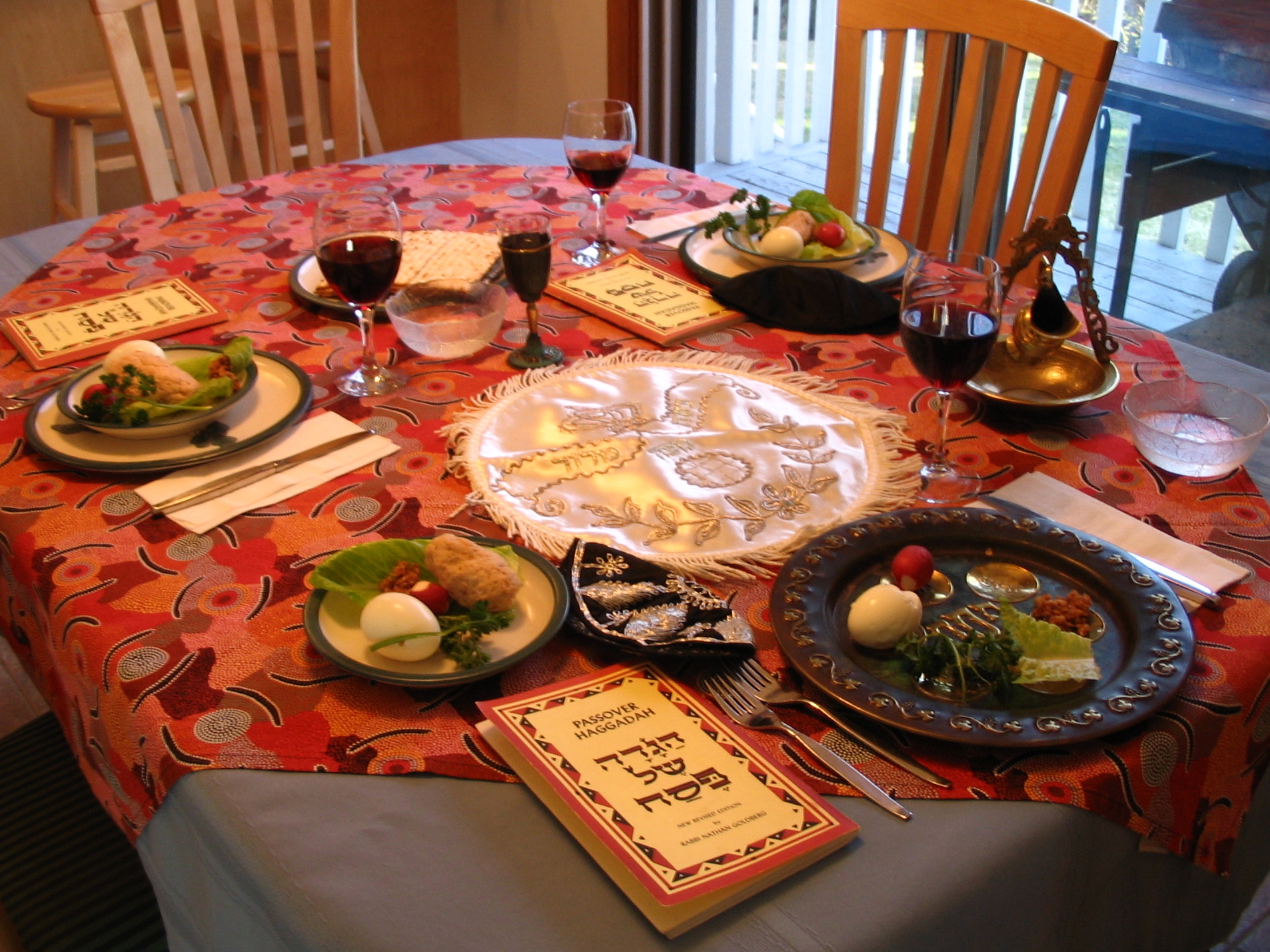 |
| A modern Passover meal setting. This is not how Jesus celebrated Passover. In fact, we have no idea how Jesus celebrated Passover |
Practicing a Passover in a Christian church, especially on Holy Thursday, risks conflating a Passover meal with Holy Communion and confusing the two in the understanding of what either is. They cannot, and so should not, be co-identified with one another.
This is what Taylor Watson Burton-Edwards, director of UM worship resources, has written on the topic:
The United Methodist Book of Worship has this to say about Seder practices. "United Methodists are encouraged to celebrate the Seder as invited guests in a Jewish home or in consultation with representatives of the Jewish community, thus respecting the integrity of what is a Jewish tradition and continuing the worthy practice of Jews and Christians sharing at table together. Celebrating the modern meal without a Jewish family as host is an affront to Jewish tradition and sometimes creates misunderstanding about the meaning of the Lord's Supper.But there is more. Most of what follows is derived from UM sources and discussion and historical studies of the subject.
First, any specific connections between the Last Supper and Passover ritual in the time of Jesus are actually impossible to establish. There are no reliable texts describing Jewish Passover practices at all until the third century, and there is no way to demonstrate that these texts, which are themselves rather sketchy on some points, reflect what first century practice would have been. Thus, trying to recreate a first-century order for Passover or imagine what it may have been is just that—an act of imaginative speculation, not an act of responsible historical interpretation. It should also be noted that Jewish Passover Seder practice today is also not based on these third century texts, nor does it claim nor try to be. Instead, it consciously embraces the later history of the development of this rite beginning in the late middle ages and into current times.
So if there was a Seder for Passover in the first century at all, literally no one today knows or can claim to know what it looked like.
Second, Jesus chose perhaps the most non-distinctive elements of the Passover meal -- bread and wine, common to all meals -- as the signs and bearers of his body and blood in all the biblical accounts of the last supper in the gospels and I Corinthians. Given conflicting accounts between Luke and the others about which cup of wine Jesus used to designate his blood, there is no way to conclude decisively, on biblical grounds, what the meaning of that cup would have been related to a first century Seder, even if we had access to a definitive text.
Third, the earliest forms of Christian Eucharistic prayers bear far more resemblance to Jewish thanksgivings for meals (Q’iddush) or for Sabbath than to anything we see from the third century or even later medieval Jewish Seder texts.
This is not a problem nor seen as a problem by Judaism. Judaism understands itself to be a developing religion. Not everything for them was settled in the biblical period. There is always more to be understood.
But it is a serious problem for 21st century Christians trying to read much, much later Jewish liturgical practices onto whatever Jesus was doing with his disciples in the first century.


